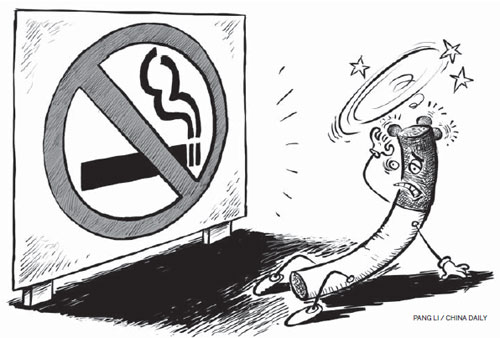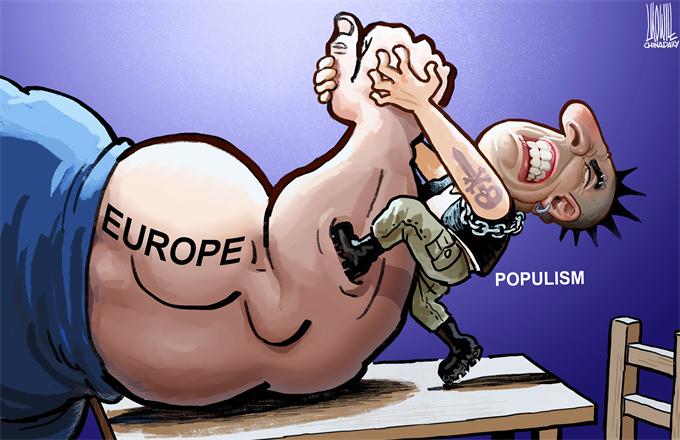Total ban on tobacco ads needed

A World No Tobacco Day 2013 poster shows the devil pulling the strings of a smoking puppet. By asking smokers to reflect whether they are being manipulated by hidden forces (read tobacco companies), the poster forcefully delivers the theme of this year's World No Tobacco Day: Ban Tobacco Advertising, Promotion and Sponsorship.
Ban TAPS is an important part of MPOWER, a policy package developed by the World Health Organization Framework Convention on Tobacco Control. The package includes monitoring tobacco use and prevention policies, protecting people from tobacco smoke, offering help to quit tobacco use, warning about the dangers of tobacco, enforcing bans on advertising, promotion and sponsorship and raising taxes on tobacco.
Tobacco companies try every possible means to increase the sale of their toxic products, and as long as such companies exist their marketing campaigns will continue. Through direct advertising and promotion, and indirect marketing campaigns, donations and sponsorships, tobacco companies want to build their brand image to increase their sales. They also try to pass off smoking as a normal and socially acceptable behavior, and create the illusion that tobacco is a harmless product.
Moreover, tobacco companies' advertisements and campaigns mainly target young people, who are curious, imitative and easily convinced. As a result, many adolescents fall prey to tobacco companies' designs and become tobacco addicts. According to WHO data, exposure to tobacco advertisements increases young people's urge to smoke.
A comprehensive ban on all forms of TAPS, as required by the FCTC, is the only way to protect people, especially the youth, from tobacco companies' marketing tactics. About 80 signatory countries to the FCTC have promised to impose a total ban on all forms of TAPS. Australia was among the first countries to ban all forms of TAPS and the results are there for all to see: only 4.4 percent of the 15-to-17-year-olds in the country were regular smokers in 2012.























